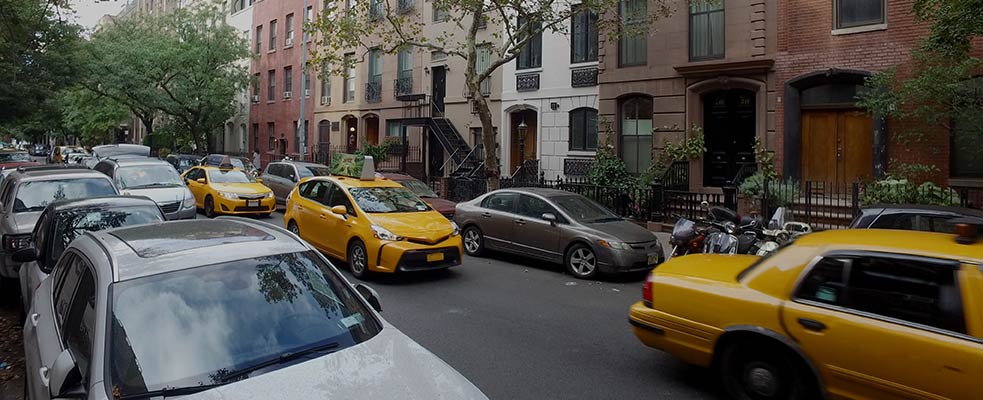
Editor's Note: This is part 1 in a two-part series on the case of People v. Kukic. To read part two, click here.
The legal consequences of an accident involving a gas system that does not comply with code are almost always in the civil arena. The injured parties file a lawsuit, and if that suit is successful, damages are awarded. However, every so often, the consequences are more serious and involve a criminal prosecution.
Just such a case arose in New York, New York, where in June 2021, the Appellate Division of the New York Supreme Court affirmed the convictions of a landlord and a contractor for manslaughter, assault and reckless endangerment for the installation of an “unauthorized, makeshift and dangerous gas delivery system.” The case, People v. Kukic, arose from a well-publicized explosion in New York City in March 2015. Two people died and 13 others were injured in the explosion.
Two Buildings
The explosion involved two five-story buildings in the heart of the city — at 121 and 119 Second Avenue. There was a single apartment on each floor of the building at 121 Second Ave., in addition to a well-known New York restaurant, Sushi Park, on the first floor. Natural gas service was provided to both of the buildings by Consolidated Edison (ConEd).
There were two gas meters in the basement of 121 Second Ave., one for Sushi Park and the other for the four apartment units. The building at 119 Second Avenue was vacant, and there was a gas meter in the basement with an uncapped outlet.
Maria Hrynenko owned both buildings, and in 2013, she decided to completely renovate the apartment units in 121 Second Ave., gutting the units and installing all new gas appliances in each of them. She hired a general contractor, Dilber Kukic, to undertake this work.
Unlicensed Contractor
Kukic then hired Anthanasios Ioannidis as the plumbing subcontractor for the 121 Second Ave. project. Unfortunately, Ioannidis was not a licensed plumber. Undeterred by this holdback, Ioannidis simply paid a former partner (Trombettas) to use his master plumbing license and professional credentials for the purpose of submitting the necessary paperwork to the city and to ConEd.
Hrynenko apparently wanted to charge the new tenants at 121 Second Ave. for utilities, because as part of the renovation each apartment would now have a separate gas meter. This would need to be approved by ConEd, which would have to install the new meters and connect them to its gas distribution system.
Meter Bar
In March 2014, ConEd approved the plan to install four separate meters for the four separate apartments, but also concluded that the increased load that would be needed for the new gas appliances required the installation of a larger service line to the building.
ConEd promptly removed the single meter in the basement of 121 Second Ave. that served the four apartment units (the other meter for the Sushi Park restaurant remained in place), and set up a meter bar to accommodate the four new meters that were to be installed later.
It appears that the four outlet lines that would be attached to the new meters were left open. Gas did not flow through these open lines because a valve in the basement remained in the closed position. ConEd’s work proceeded slowly, but the apartment renovations at 121 Second Ave. did not. In early 2014, Hrynenko had leased the four apartment units at a monthly rate of $6,000 each. In August, the tenants would be moving in. However, there was no gas to the units, which presented a $24,000-a-month problem for Hrynenko.
Illegal Diversion
In July, Hrynenko told Kukic to solve the problem by drawing gas from the Sushi Park meter that was in the basement of 121 Second Ave. Ioannidis then connected flexible tubing to the restaurant’s meter to provide gas to the tenants in the floors above. The tenants knew nothing about this illegal setup.
However, the flex line was leaking, and a ConEd meter reader quickly discovered the unauthorized and illegal system. The result was that ConEd red-tagged the entire system at 121 Second Ave., including the restaurant system, and advised Hrynenko to hire a licensed plumber to rectify the situation. Now Hrynenko had a double problem — neither the apartments nor the restaurant were getting gas.
A Second Diversion
Undeterred, Hrynenko, Kukic and Ioannidis went to work on a second illegal gas delivery system. There was an uncapped commercial grade gas meter in the basement of 119 Second Ave., a vacant building next door that was also owned by Hrynenko. Ioannidis put together a series of pipes and valves that connected this meter to the apartment units in 121 Second Ave.
The system was set up in the back of the building’s basement, behind locked doors, hidden from ConEd and obscured from view by tenants, workers and potential inspectors. To prevent anyone from tampering with the system, Ioannidis removed the handles of shut-off valves that controlled the gas flow, effectively limiting the ability to determine whether the valves were closed or open.
In August 2014, Ioannidis — using his previous partner’s license — sent an affidavit to ConEd asserting that a pressure test on the restaurant’s gas meter had been performed successfully. Based on this affidavit, ConEd restored gas to the restaurant. The upstairs tenants continued to receive gas by way of the illegal gas delivery system.
Valves Left Open
The illegal system operated without incident until March 2015, when ConEd’s installation of a new 4-inch service line to provide gas to the apartments at 121 Second Ave. was completed. ConEd scheduled testing of the system at 121 Second Ave. for 2 p.m. on March 26.
Before the ConEd inspectors arrived, Kukic and Iaoniddis turned off the secret gas system at 119 Second Ave. What they did not realize was that in order to conduct their tests, the inspectors had to open multiple valves in the system at 121 Second Ave. These valves were left in the open position when the inspectors left at about 2:45 p.m.
Because of several deficiencies with the proposed gas meter location, ConEd employees did not approve their installation. At the time, there was no sign of leakage or odor, and the full extent of the unauthorized gas delivery system remained hidden from inspectors’ view.
As soon as the ConEd inspectors were gone, Michael Hyrnenko (Maria’s son and the manager of the building) and Kukic went back to 119 Second Ave. and turned on the secret system. They did not realize that in doing so, they were sending gas through the open outlets in the meter set in the basement of 121 Second Ave.
Explosion
At about 3 p.m., someone at Sushi Park smelled gas. Although neither 911 nor ConEd were called, Maria Hyrnenko was contacted. Shortly thereafter, Michael Hyrnenko and Kukic were seen on surveillance footage entering the basement of 121 Second Ave., then swiftly sprinting out and toward 119 Second Ave.
They made no effort to warn those in the restaurant or the rest of the building. The explosion occurred shortly after. Moises Locon, an employee of Sushi Park, and Nicholas Figueroa, a diner, who were both inside the restaurant at the time of the explosion, were killed.
At least 13 other individuals suffered serious injuries as the lower floors of 121 Second Ave. buckled and caught fire, which quickly spread and destroyed adjacent properties, leading to the eventual collapse of the properties at 119, 121 and 123 Second Ave.


